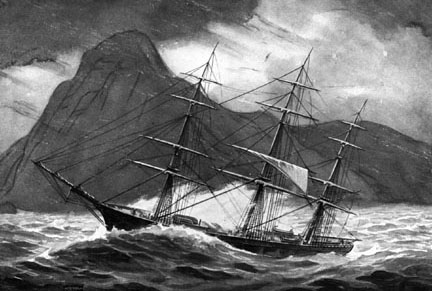
|
Home
|
|
|
 Colonization, an obscene concept now, that five hundred years ago was the backbone of
many European nations' economies. In the most part of The Martian Chronicles, history repeats
itself in colonization. Native populations decimated, terran cultivated to suit the colonizer's desires,
and people that didn't seem to care what so ever. The history behind these stories is long and
terrible in many places, but as most historians see it, colonization was inevitable for the rest
of the world.
Colonization, an obscene concept now, that five hundred years ago was the backbone of
many European nations' economies. In the most part of The Martian Chronicles, history repeats
itself in colonization. Native populations decimated, terran cultivated to suit the colonizer's desires,
and people that didn't seem to care what so ever. The history behind these stories is long and
terrible in many places, but as most historians see it, colonization was inevitable for the rest
of the world.In the late 14th century, some major events in exploration occurred that we today call the Age of Exploration. The main points here to note that sprang a sudden uprising in colonization were, first, the discovery of New World by Columbus, and the first voyage around the Cape of Good Hope by De Gama, who in turn became the first European to reach India by a sea route. One thing to note in The Martian Chronicles, was the Fourth Expedition, which was the first expedition to send back a full report of their findings, after which Mars was immediately colonized.
After these explorations, a quick wave of colonizing of the rest of the entire world took place over the next four hundred years. Starting with the Americas and West Africa, and then spreading over the Indian Ocean. All of these colonies were used almost completely for the economic purposes of many European nations. After over a hundred years of colonizing, England lead the pack with nearly no trading competition. It's especially good to note that most gold and silver found in Central and South America eventually ended up in Asia for trade of goods. England began to abuse its power by controlling other Asian nations to even further extend its power.
In the late 19th century Britain began to see much more competition, especially with the recently unified Germany. The European nations then colonized what were left of the world- Africa and the Pacific. In what has been called The Scramble for Africa, one nation or another controlled literally every corner of the continent. In the Pacific, America was taking control of the very influential islands of Hawaii. Hawaii is the best example of the effects of colonization because not only were there waves of missionaries that converted much of the population, their original religions nearly forgotten, but their population was decimated to less than one third of it's original stature. All forms of Hawaiian government were then taken over by America. Other places in the Pacific were Korea by the Japanese and what the French called Indochina. After the Second World War, most colonies began to obtain independence with help by the United Nations. One of the major reasons for so many countries today is because of all this independence.
In conclusion, I must say that colonization is a horrid thing today and will continue no further on Earth. As in The Martian Chronicles, I believe colonization could see another sudden uprising with space travel, but this time in a much more civilized way. We now have a detailed past to learn from about this issue, so the mistakes made long ago might not ever be repeated again. Colonization is and was most certainly inevitable.